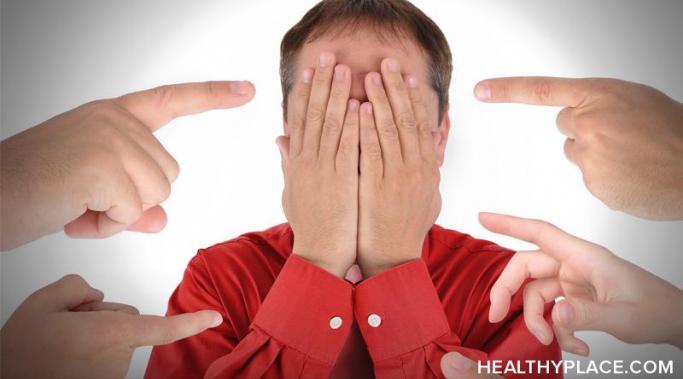My anxiety over health insurance since my divorce 15 months ago, is increasing daily. While married, I was covered as a dependent under Tricare, the military’s insurance. When I moved to Idaho and eventually divorced, I found myself in what is called "the gap" in Idaho's health care coverage.1 It is a hole in Idaho’s health insurance plan where thousands of Idahoans do not have affordable access to healthcare coverage. Because my daughter is on her father’s insurance, I am not eligible for Medicaid. As it stands, I receive no tax credit for insurance because of my income bracket. Therefore, affordable rates for health insurance aren't available to me. I need anxiety treatment, and this anxiety over health insurance is not helping.
Anxiety Causes
Sometimes, knowing the main causes of anxiety isn't necessary. Sometimes, it's not even desirable because working to uncover the causes of your anxiety could do more harm than good. There are times, however, that knowing the main cause of your anxiety can be very helpful because it gives you something tangible to address. Let's look at two main causes of anxiety and discover how to remove them.
Anxiety jabbers incessantly, creating maddening and anxious running commentary in our heads. To make it worse, anxiety acts as a translator and interprets what we hear and see, twisting things into its own warped ideas. With anxiety translating messages we receive, we often misinterpret the world around us. Anxiety's untrustworthy thoughts lead to self-doubt, faulty reasoning, negative beliefs, overthinking, and overanalyzing. Becoming aware of how the anxious voice in your head translates our incoming messages is an important step in correcting the translations and quieting the anxious running commentary that interrupts your inner speech.
The day the calendar turns to November, and often well before that, many people begin to experience holiday anxiety. There are legitimate, and numerous, reasons for this. The seven causes of holiday anxiety discussed below are common. They can cause anxiety in people who don’t have anxiety disorders, and they can magnify existing anxiety disorders to such a degree that they cause people to question their sanity. Understanding the causes of holiday anxiety can reduce your anxiety and allow you to actually enjoy yourself this holiday season.
Performance anxiety may prevent me from living my dream of singing professionally. Since junior high school, choir teachers and audience members commented on my anxious stage presence. I loved to sing with other people in unison or harmony, but when it came to solos, I was a nervous wreck. I was the recipient of the “Every Which Way but Loose” award in high school choir because onstage, I simply couldn’t relax and enjoy performing. Performance anxiety was front and center at every concert, and it often stole my spotlight.
How do you stay grounded when the superwoman syndrome or the superman complex make your anxiety soar? It's hard to feel calm and live anxiety-free when you pressure yourself to be perfect in every way, in every situation. Living with the superwoman syndrome or a superman complex can make you feel high-strung yet utterly exhausted. It can cause multiple symptom-types of anxiety: physical, cognitive (thought-based), and emotional. If you feel you have to be Superman or Superwoman, you may find that the idea of letting go actually increases—not decreases—anxiety. That's okay. Getting rid of this kind of anxiety is a process. Read on for tips on how to stay grounded to get rid of the superman complex or superwoman syndrome.
Do you expect yourself to be Superman or Superwoman, a person with powers so great that you can do it all with no side effects like anxiety? If you are, you’re not alone. This pressure to do it all, be everyone to everything, is common enough to have terms attached to them: Superman complex or the Superwoman syndrome. Feeling pressured to live your life in a superhuman way can and does contribute to anxiety. You can use your very human powers to fight the Superwoman syndrome or Superman complex and decrease anxiety.
What causes my anxiety? Why am I so anxious? As if anxiety itself weren’t bad enough, not knowing what causes anxiety can make matters even worse. It’s natural to want to know just what is making you feel the worry and fear of generalized anxiety disorder, the dread of people and social situations of social anxiety disorder, the unease of separation anxiety disorder, the frights of phobias, or the death-grip of panic disorder/panic attacks. Knowing what causes any type of anxiety can be an important part of the puzzle and can help you move forward.
If you live with anxiety, chances are pretty good that you’ve heard a well-meaning family member or friend tell you, “Just get over it,” "Just get over anxiety." If it were that easy, no one would have anxiety because we’d all get over it and move on (‘Get Over It’ Is Unhelpful Advice for Mental Illness Sufferers). Unfortunately, the idea of just getting over it doesn’t help anxiety, and being told to do so can make it worse. Why doesn’t hearing “Just get over it,” fail to help anxiety? What can you do about it?
Do you hate the phone (or, more specifically, talking on the phone) or experience phone anxiety? If so, you’re not alone. I loathe talking on the phone, and I’m always surprised by the people I encounter who confess the same thing. Aversion to the phone exists on a spectrum, ranging from a simple dislike to a much more complex reaction involving full-blown anxiety, with all of its physical and emotional symptoms. Continue reading to learn some facts about phone anxiety as well as ways to deal with hating talking on the phone.









